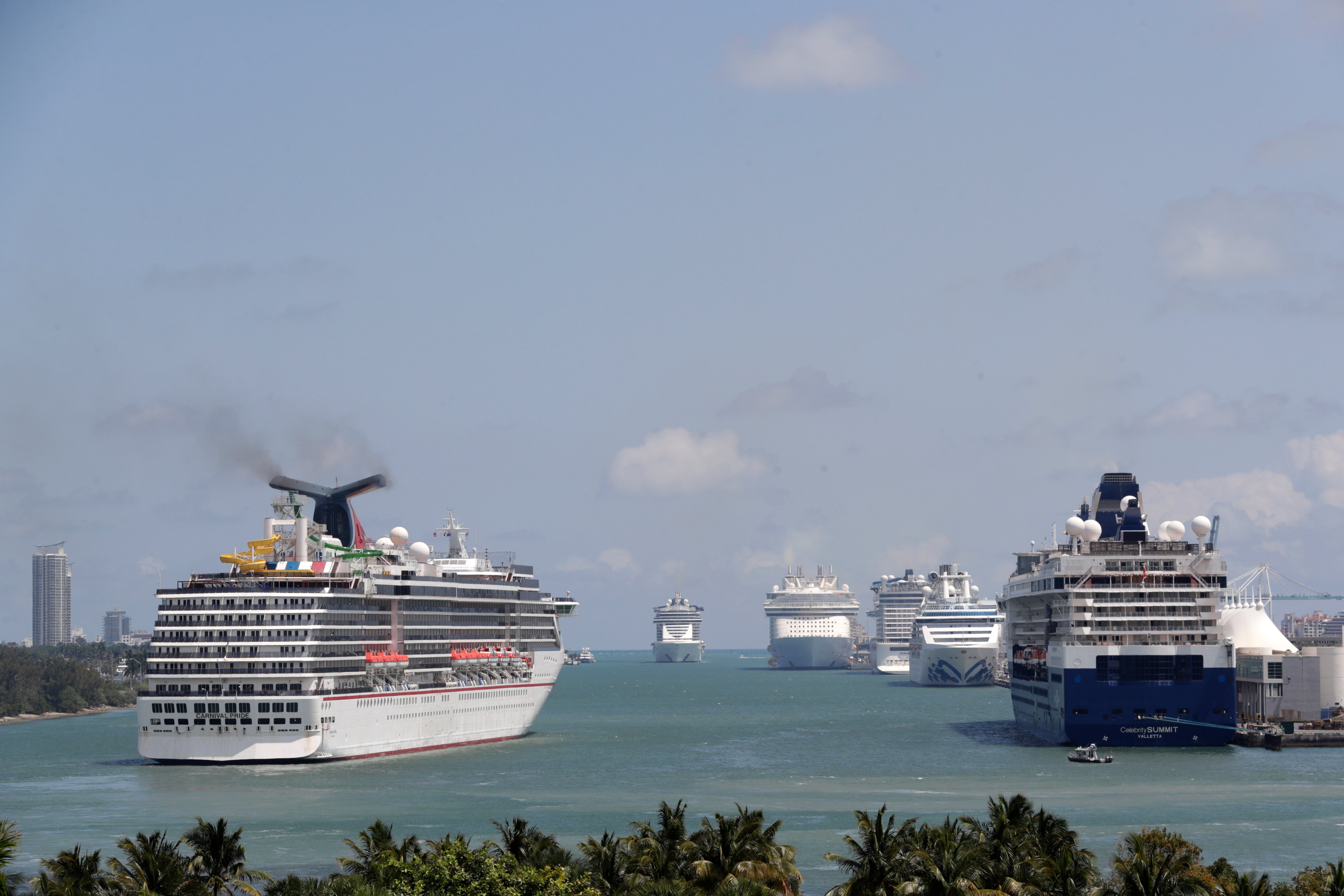Which lateral flow tests can I use for my UK return?
Simon Calder answers your questions on the latest testing protocol and whether there will be another cruise ship ban


Q Can one bring a lateral flow test kit with them abroad for the pre-departure test back to the UK – or does it have to be done at a testing site? I’ll only be gone a day, which is why I am asking.
Casey
A You are talking here about the pre-departure negative test result for entry into the UK that travellers from everywhere except Ireland must present in order to be allowed on a train, ship or plane to the UK. The test must be taken on the day of departure to the UK or on one of the previous two days (if your final destination is Wales, the time limit is 48 hours before departure).
Anyway, I infer that you are heading for a destination that does not require you to have a test for entry (quite possibly because of your vaccination status); if you did need a test, then whether it was a lateral flow or PCR, it would also be acceptable for travel back to the UK.
So what should you do? The first stipulation is that you cannot use an NHS lateral flow test for the purpose of international travel, outbound or inbound. The test must be medically certified, but it can be self-administered. Private providers sell lateral flow tests for the traveller’s use, with certification based on a photo or video.
Clearly, this system is open to abuse, which is why a large number of countries do not allow it. Portugal, for example, insists on arrivals having a certificate issued after a proper, medically administered test.
The UK accepts this testing method, and it may prove the cheapest option for your trip. These tests are far from optimal, though, and one properly administered by a professional is much more likely to be accurate.
You could get a test organised at your destination. Yet it makes much more sense in your situation to have the test in the UK before you leave. You might imagine this completely defeats the point of a pre-departure check to ensure you have not picked up Covid abroad, but the rules allow it.
Testing before you leave the UK has the advantage of picking up any infection, which is an excellent way to minimise spreading the virus to others on your plane, train or ship. Either get it done locally, perhaps the day before your trip, or pre-flight at the airport.
Finally, you will also need to book a post-arrival PCR test for your return to the UK, and self-isolate until you receive a negative result.

Q I am looking at going to Turkey this year. The exchange rate is great. If we get our money now and the lira collapses do we get money back? Or can we be covered by travel insurance?
Andrew D
A Many people are keen to return to Turkey: for the first 19 weeks of last year it was illegal to go on holiday there or anywhere else abroad, and then all summer long Turkey was on the “red list” requiring hotel quarantine on return to the UK.
Turkey has always been a good-value destination, and many of us are watching the slump in the Turkish lira with interest. It has been one of the world’s worst-performing major currencies in recent years, and the slide continued when the markets opened yesterday. International financial markets are unimpressed by President Erdogan, who has declared an “economic war of independence” and is cutting interest rates rather than raising them. Such eccentric behaviour has triggered a relentless sell-off of the Turkish lira.
In the past four years the currency has lost 73 per cent of its value against sterling. But inflation has soared too, wiping out most or all of the benefit for foreign visitors: a beer, souvenir or bus ride is probably the same in sterling terms as last time you were in Turkey.
You are not the only prospective visitor who has wondered about buying currency ahead of the trip because of the latest slump. But I warn strongly against doing so.
Buying any currency ahead is speculation, and a form of gambling. In the same way that you would not expect a refund of your stake if you backed a loser in the Grand National, no one will be interested in covering your losses if the lira slides further.
Insurance? While I dare say there is some complex financial derivative that might offer some protection, constructing any such deal for holiday spending would be excessive. It looks to me that, with no sign of any change to the president’s fiscal policy, the value of the lira is going only one way: down. I recommend you do not change pounds for Turkish lira unless you are actually in Turkey.
Take clean sterling notes and shop around for the best deal when you are there. Change little and often: partly because the lira could sink still further against sterling by the day, and partly because you do not want to be stuck with Turkish currency at the end your trip. You will certainly get a poorer exchange rate changing lira back to sterling at the airport than you did when you originally obtained the currency.

Q Are cruises going to be banned again, based on CDC advice, and if so for how long do you think?
Angela C
A My sole experience of cruising – aboard the first voyage to leave the UK once the ban was relaxed last year – was not exactly joyful. The pre-boarding testing regime was onerous. The mask rules not conducive to carefree travel. And the only way to leave the ship at a port of call was on an expensive excursion. So while I do not expect cruises to be banned again by either the UK or US governments, for a while yet only true devotees will want to step aboard.
Allow me to delve more deeply into the latest warning from the US Centers for Disease Control (CDC, the American health regulator).
On 30 December the organisation issued a stark warning against going on cruises: “Avoid cruise travel, regardless of vaccination status. The virus that causes Covid-19 spreads easily between people in close quarters on board ships.
“The chance of getting Covid-19 on cruise ships is very high, even if you are fully vaccinated and have received a Covid-19 vaccine booster dose.”
The CDC also urges cruise passengers should be tested between three and one days before getting on board and take a second test three, four or five days after the voyage (though anyone who has recovered from Covid-19 within the past three months need not do so).
“Passengers who are not fully vaccinated should self-quarantine for a full five days after cruise travel,” it warns – adding “It is especially important” that travellers at an increased risk of severe illness from Covid-19 avoid travel on cruise ships, including river cruises, regardless of their vaccination status.
The UK Foreign Office picks up the theme, saying: “Although operators have taken steps to improve infection control, cruise ships continue to experience Covid-19 outbreaks, affecting passengers and seafarers. The confined setting on board and combination of multiple households enables Covid-19 to spread faster than it is able to elsewhere.
Yet however governments (and I) might feel about cruising, currently many people are at sea. The cruise lines say they can offer cruising with confidence.
“We’re fully prepared with immediate medical evaluations, rapid testing and more critical care beds on each ship in the event of a suspected case of Covid-19,” says one of the biggest, Royal Caribbean. A rival line, Princess, vows: “When you’re ready to sail again, we’ll make sure it’s as safe as possible. So dream on. Make plans. And let’s look forward to exploring this big beautiful world together soon.”
Email your questions to s@hols.tv or tweet @SimonCalder






Join our commenting forum
Join thought-provoking conversations, follow other Independent readers and see their replies
Comments